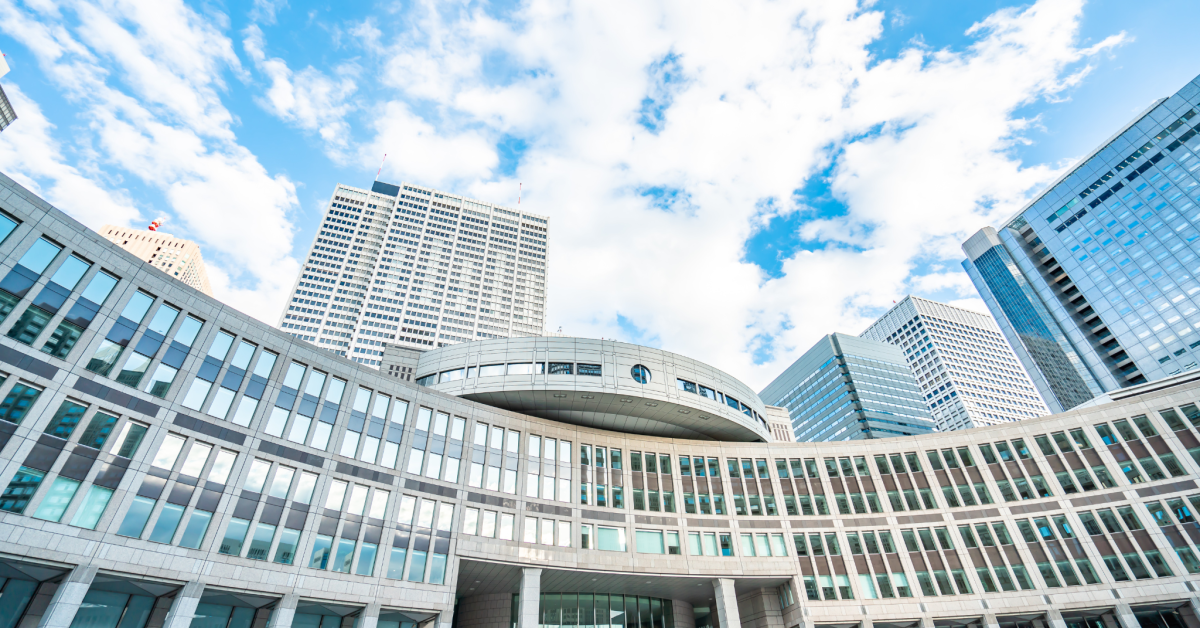Implications of President Yoon Suk-yeol’s Impeachment
At a Glance
The impeachment of President Yoon Suk-yeol has triggered significant political uncertainty in South Korea. Prime Minister Han Duck-soo has assumed leadership as acting president.
The Constitutional Court will rule on the impeachment within 180 days, potentially paving the way for a new presidential election.
Businesses face challenges from a leadership vacuum, stalled decision-making, and heightened legislative scrutiny under expanded National Assembly oversight.
To navigate this uncertainty, businesses should reinforce compliance, prepare for increased legislative oversight, and adopt proactive risk management strategies.
State of Affairs
Impeachment Motion Passed by National Assembly
On December 14, 2024, the National Assembly passed the impeachment motion against President Yoon Suk-yeol, initiated by six opposition parties, including the Democratic Party of Korea (DPK), the Rebuilding Korea Party, and the New Reform Party. Of the 300 votes cast 204 were in favor, 85 were opposed, 3 abstained, and 8 were invalid. Notably, 12 members of the ruling People Power Party (PPP) voted in favor, highlighting the internal fractures within the party.
Key Events Leading to Impeachment
- December 3, 10:25 PM KST: President Yoon declares martial law.
- December 4, 1:00 AM KST: National Assembly votes to revoke martial law—Passed.
- December 4, 4:30 AM KST: President Yoon revokes martial law.
- December 7, 9:26 PM KST: Initial impeachment motion fails due to insufficient support.
- December 14, 5:00 PM KST: Second impeachment motion—Passed.
Legal Framework for Presidential Impeachment
Under Article 65 of the South Korean Constitution, impeachment proceedings may be initiated if a president is deemed to have violated the Constitution or other laws. Upon passage of the motion:
- The president’s powers are immediately suspended, and
- Prime Minister Han Duck-soo assumes interim leadership as acting president.
- The Constitutional Court will then decide whether to uphold or dismiss the impeachment motion within 180 days, per Article 38 of the Constitutional Court Act.
Post-Impeachment Political Dynamics
Transition to an Acting Presidency
With President Yoon Suk-yeol’s suspension following the impeachment motion, Prime Minister Han Duck-soo has assumed the role of acting president.
- Immediate Transition: The acting presidency began as soon as the impeachment resolution was officially communicated to the Presidential Office.
- Duration of the Acting Presidency:
- If the Constitutional Court upholds the impeachment, Han Duck-soo will serve as acting president until a new president is elected and inaugurated.
- If the impeachment is dismissed, President Yoon will immediately resume his duties.
While the acting president holds full executive powers—including commanding the armed forces and signing treaties—expectations are that Han’s role will focus on maintaining stability rather than introducing major reforms.
Authority and Limits of the Acting Presidency
Although not explicitly defined in South Korean law, precedent suggests the acting president can exercise full powers, including:
- Declaring martial law or emergency measures, if necessary.
- Reviewing and vetoing legislative bills, though this remains a gray area under constitutional interpretation.
For context, during President Roh Moo-hyun’s impeachment, the acting prime minister exercised veto powers, underscoring the potential scope of authority.
Constitutional Court’s Role and Timeline
The Constitutional Court will determine the validity of the impeachment motion.
- Expected duration: While the legal timeline is 180 days, historical precedents suggest a faster resolution to avoid prolonged governance vacuums (i.e., President Roh Moo-hyun: 63 days, President Park Geun-hye: 91 days).
- Key issues under review: These included was the declaration of martial law constitutional? Did the circumstances justify such measures (e.g., war, rebellion, or a comparable national emergency)? Were actions targeting the National Assembly and lawmakers legal? And did measures affecting the National Election Commission breach constitutional principles?
The Court’s decision will have far-reaching consequences, determining South Korea’s political trajectory.
Legislative and Executive Dynamics
With the acting presidency in place, expect the following:
Legislative Focus
- Opposition parties, led by the DPK, will likely pursue aggressive parliamentary investigations and independent prosecutions to scrutinize the administration’s actions.
- Precedent from President Park Geun-hye’s impeachment shows the likelihood of formal legislative inquiries into the crisis.
Executive Leadership
- Key ministries such as the Ministry of National Defense (MND), Ministry of the Interior and Safety (MOIS), and Ministry of Justice (MOJ) are expected to shift to interim leadership under vice ministers.
- Discussions on forming a bipartisan emergency economic council could gain momentum to stabilize governance and address economic uncertainties.
Economic and Diplomatic Implications of the Crisis
Economic Uncertainty yet Market Stability
The declaration of martial law on December 3 caused immediate disruptions in South Korea’s financial and foreign exchange markets, leading to heightened volatility. While markets have since regained temporary stability, significant challenges remain:
- Leadership vacuum: The absence of a functioning president hampers the government’s ability to respond decisively to evolving economic pressures and economic shocks.
- Global economic risks: With the US presidential transition in January 2025, South Korea faces increased economic uncertainty as it recalibrates trade and policy relationships.
In this fragile environment, the political vacuum is likely to undermine investor confidence, South Korea’s international credit ratings, and long-term market stability.
Impacts on Diplomatic Priorities
This political instability has stalled high-level diplomatic engagements, disrupting foreign policy efforts:
- Postponed Commitments: Key bilateral and multilateral meetings have been postponed or canceled following the political crisis.
- Recalibrating US Relations: With President Trump’s inauguration in January 2025, South Korea must prepare to realign its security and economic priorities to adapt to new US policy directions.
Given ongoing tensions and policy uncertainty, South Korea’s ability to effectively engage in international diplomacy may be constrained until political leadership is stabilized.
Regulatory Policy Outlook
The political turmoil is expected to stall any regulatory changes:
- Passive policy stance: Interim leadership is unlikely to introduce new reforms or tighten existing regulations.
- Status quo for Investigations: Regulatory agencies, including the Prosecutor’s Office, National Police Agency, and the Fair Trade Commission, will proceed with pre-existing investigations and cases.
- Reduced Initiative: Large-scale investigations or new policy measures will likely be deprioritized during this period of political uncertainty.
Businesses can expect a temporary freeze on new regulatory initiatives but should remain vigilant for shifts once political clarity emerges.
Strategic Business Actions Amid Uncertainty
Adapt to Expanded Legislative Oversight
With the amended “Act on Testimony and Appraisal Before the National Assembly” taking effect on December 21, 2024, businesses face increased scrutiny and compliance risks from key amendments.
- Mandatory Document Disclosure: Confidential information, including trade secrets, must be provided during legislative audits, hearings, or agenda reviews.
- Expanded Witness Obligations: Witnesses unable to attend in person must attend remotely.
- Stricter Penalties: Noncompliance, including document destruction, false reporting, or obstruction, can result in imprisonment (1–5 years) or fines of up to KRW 50 million (~USD 35 million).
Action Steps for Businesses:
- Strengthen Compliance Protocols: Review systems for document management and ensure confidentiality safeguards are in place.
- Executive Training: Prepare senior leadership for engagement with legislative inquiries.
- Mitigate Reputational Risks: Develop clear communication strategies to maintain stakeholder trust.
Monitor Policy Shifts
The likelihood of a DPK administration after early elections requires businesses to expect policy changes:
- Renewable Energy Investments: Expect increased support for clean energy sectors, including solar, wind, and hydrogen energy.
- Stronger Support for SMEs and Startups: Policies promoting funding, workforce development, and innovation will likely gain traction.
- Fair Competition Regulations: Stricter scrutiny of large conglomerates and anti-competitive practices may impact corporations.
Actions Steps for Businesses:
- Identify opportunities in renewable energy and SME ecosystems
- Conduct risk assessments for regulatory changes affecting operations and competition.
By taking proactive steps, businesses can minimize disruptions, ensure compliance, and position themselves to capitalize on opportunities amid South Korea’s evolving political landscape.
Materials presented by Edelman Global Advisory Japan. For additional information, reach out to Huan.Hwang@Edelman.com or Richard.Andrew@EdelmanEGA.com



